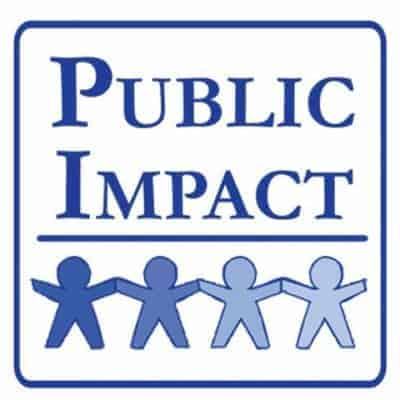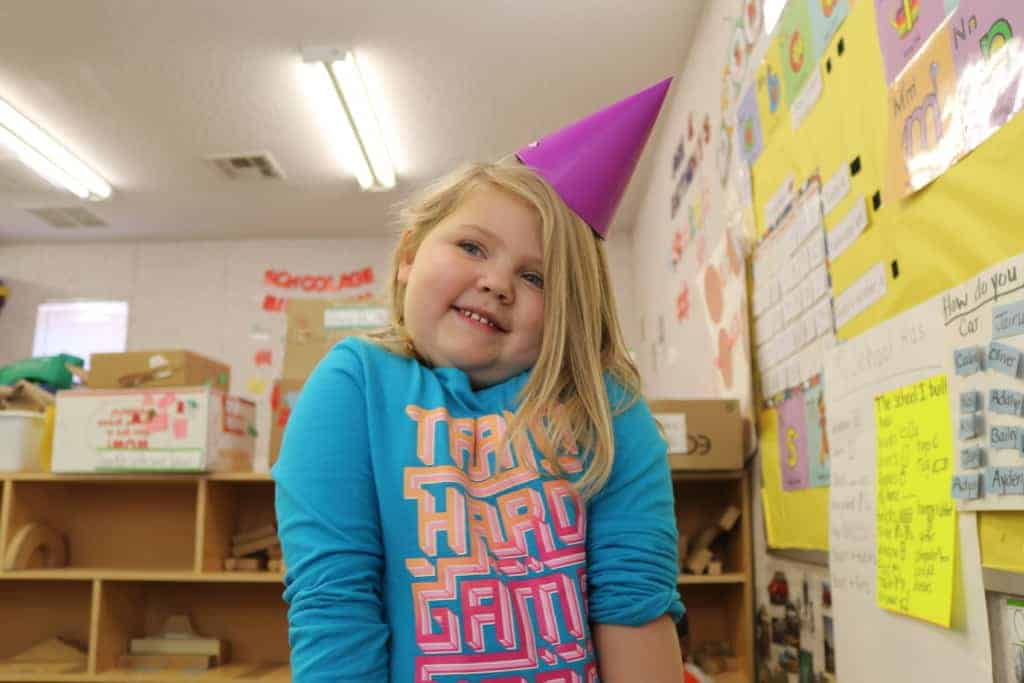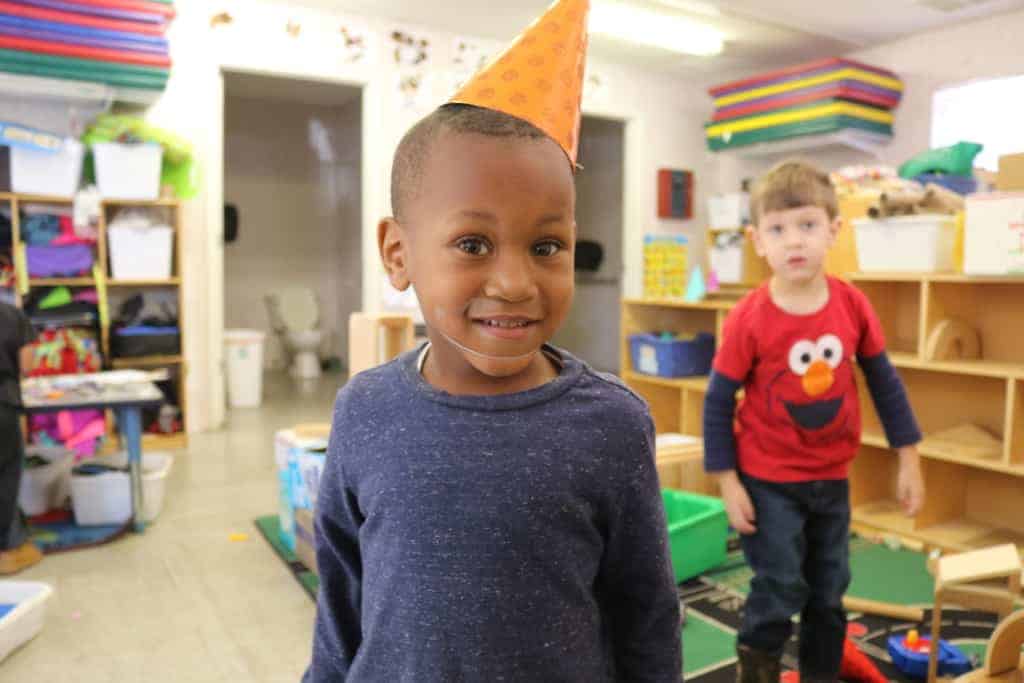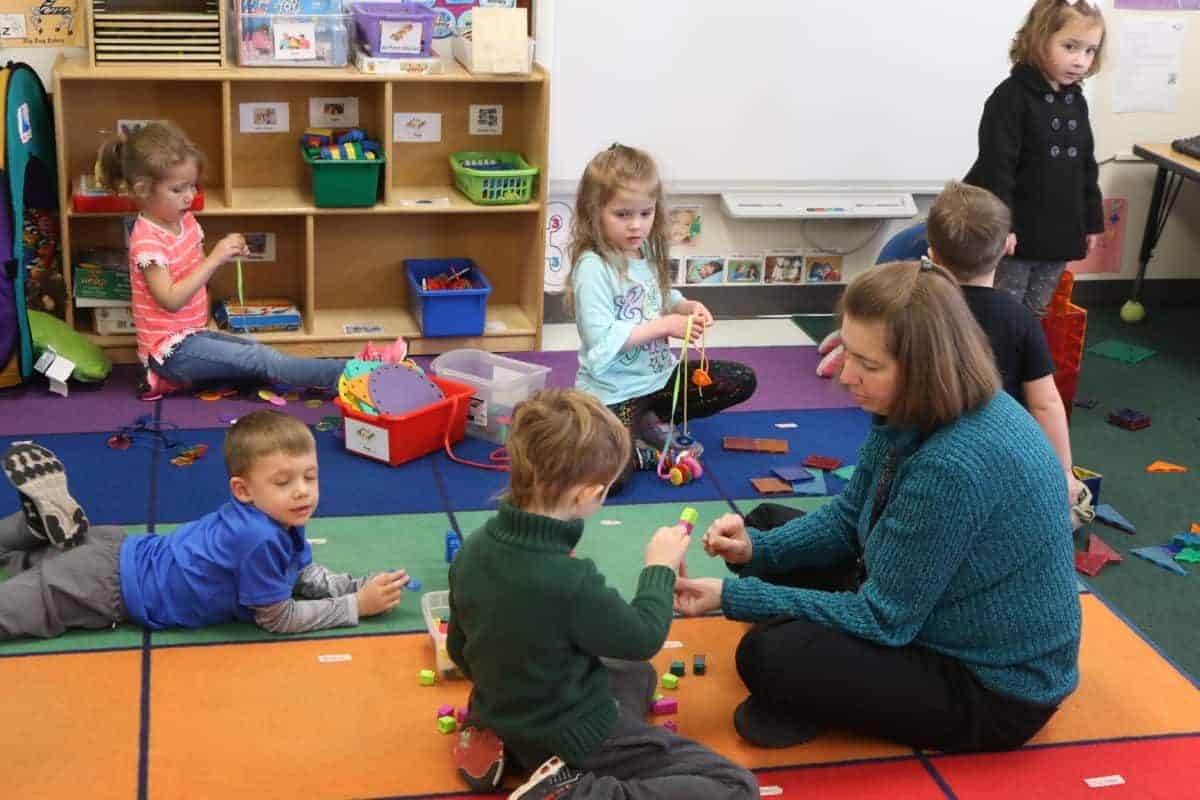
Davie County is in its second year of the DavieLEADS grant program. That is a five-year, $2.5 million grant from the Mebane Foundation to improve kindergarten readiness and third grade reading proficiency. Its specific goal is to get kindergarten readiness from 70 percent to 90 percent and third grade reading proficiency from 60 percent to 80 percent by 2022.
In the past few days, we’ve talked about DavieLEADS’ efforts around elementary schools in the county, but another crucial aspect of the initiative is intervening in pre-K classrooms.
NC Pre-K is the hallmark program of North Carolina early childhood education, bringing high-quality pre-K instruction to students around the state. In contrast to North Carolina’s traditional public school system, NC Pre-K is administered by a mix of public and private institutions.
In Davie County, the school district is using DavieLEADS to get private and public pre-K programs on the same page.
“In pre-K, our main goals were number one trying to make sure that all preschool classrooms, NC Pre-K in particular, but preschool across the county — whether they were public schools or private preschool and child care centers or half-day churches — that we’re getting the teachers some of the same information, some of the same curriculum materials, so that everybody has resources to do a high quality job,” said Stephanie Nelson, a preschool collaborative teacher for Davie County.
She talked with EducationNC reporters in the midst of a swirl of students inside a pre-K classroom at Cooleemee Elementary in Davie County. In a word, the classroom looked like chaos, with students moving to and fro, picking up and playing with a variety of items, and talking excitedly.
Nelson said that when it comes to pre-K, looks can be deceiving.
“In preschool, our main goal is for children to learn through play. So, it looks like we are just goofing off, but we are not,” she said.
She went on to explain that every piece of equipment in the room is helping students learn how to do certain things, like manage playing with materials, cleaning up, and interacting with other students.
Some of the big changes Nelson has seen since the implementation of DavieLEADS is increased communication and access to resources.
She explained that pre-K is often separate from the rest of the K-12 education system. They are, in essence, a world apart.
“As you can see, physically here, pre-K stands alone in many places, and you’re the only preschool teacher,” she said.
One of the goals of DavieLEADS is to increase collaboration among preschool teachers across the county. This gives them the natural interaction that many K-12 teachers take for granted. The grant has also allowed Davie County pre-K to access more technology and other resources, including the ability to better collect and analyze data.
Nelson has been working with the DavieLEADS program for two years, but pre-K teacher Jodi Walker was at Cooleemee prior to the grant. She says the technology and programs that help monitor development in pre-K students have been especially helpful. And she says she’s noticed a change in the students since The Mebane Foundation stepped in.
“Do I see a change in them?” she asked. “Yes. They’re more interactive.”
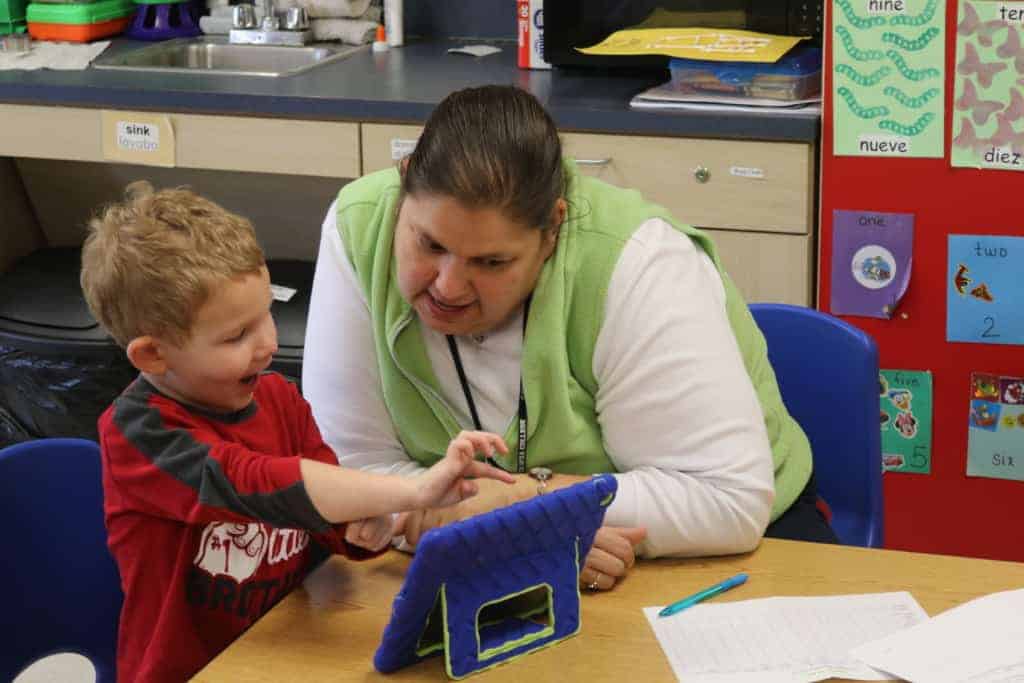
The pre-K classroom at Cooleemee is, obviously, part of the district’s school system, but through DavieLEADS, Nelson and other district staff are also working with private preschools like Kountry Kids Preschool in Mocksville.
Housed in a stand-alone trailer, the preschool really is in a separate world from the traditional K-12 school, a challenge that separates it from its preschool analogues housed in the traditional school system, according to Lynn Marrs, the site director for NC Pre-K at the facility.
“In my experience in working in an elementary school, they wouldn’t have daily exposure to a school environment,” she said of the students at Kountry Kids.
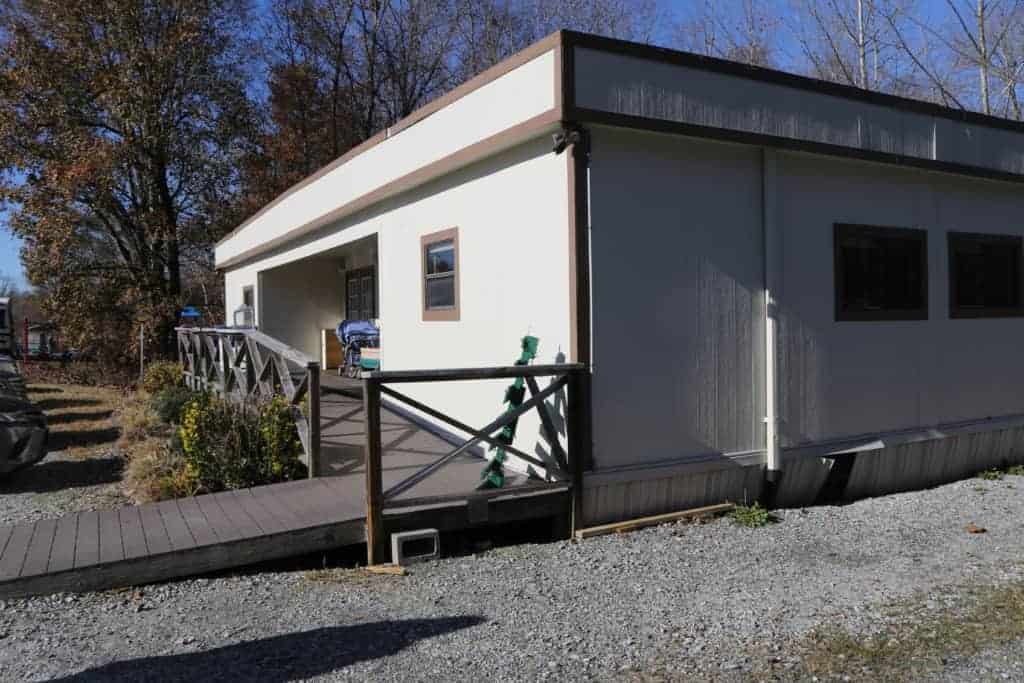
Marrs is a former elementary school principal. When she was in a traditional public school setting, she said that preschool students would have regular chances to do simple things that older students take for granted, such as going to the lunchroom, seeing the media center, or even getting exposure to what a kindergarten classroom looks like.
These may seem like simple things, but for preschool students, exposure to what their next level of education is going to look like is a big deal. Through its partnership with Davie County Public Schools, Kountry Kids students do get to make visits to elementary schools, but Marrs said the environment is definitely the big difference between her program and what you might see in a traditional public school.
Other than that, she said the curriculum is pretty much the same. Private NC Pre-K programs have to follow state guidelines around who they hire as teachers and what kind of curriculum they teach, but through the DavieLEADS grant, the school system is trying to coordinate the curriculum between private and public preschools even more, ensuring that the quality of education students get is basically the same no matter the preschool setting.
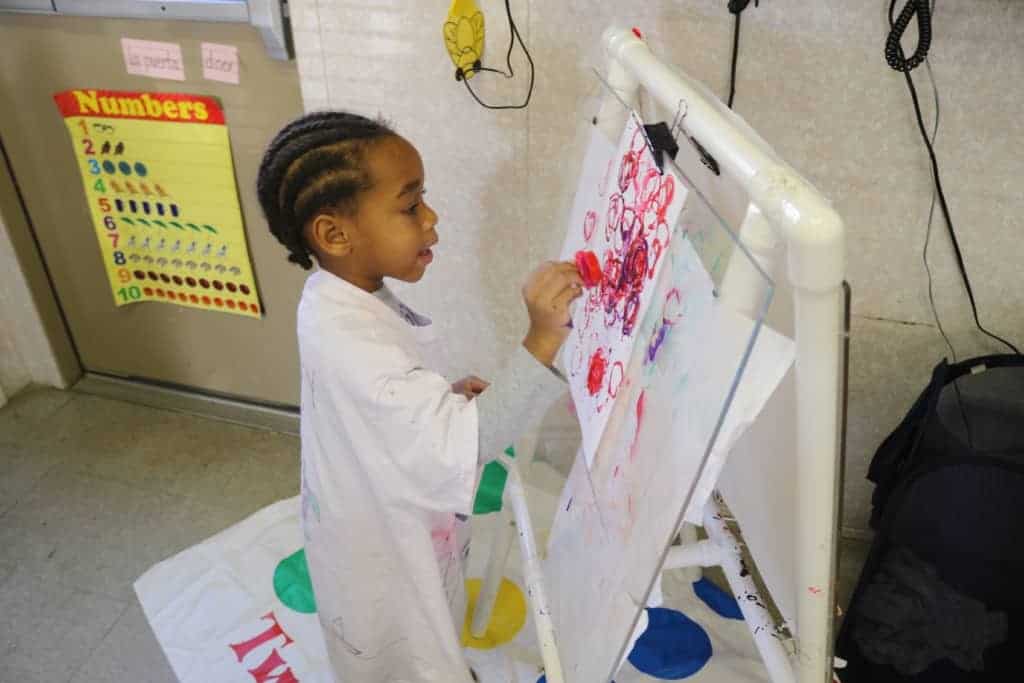
One of the big advantages of the grant, Marrs said, is the increased resources Kountry Kids has access to. That includes technology, such as programs that allow her school to better assess students using robust data. She said parents were really impressed when Kountry Kids was able to provide more detailed assessments of students thanks to the DavieLEADS grant.
“When we went through report cards and we went through assessments, it was a big eye opener,” she said.
And thanks to the data to which the school now has access, Kountry Kids is better able to differentiate instruction based on the needs of students.
When The Mebane Foundation was trying to figure out how best to intervene in Davie County Schools to improve literacy, one of the things it recognized was that it had to create a continuum of educational interventions that started early and extended through the third grade. That’s the big difference with the DavieLEADS grant, according to Larry Colbourne, president of the foundation.
“We went down into the pre-K world,” he said. “Normally, we always got the kids in kindergarten and then try to get them reading by the third grade. We decided to go deeper, and that’s a huge part of this project.”
In year two, DavieLEADS has a long way to go, but Colbourne has already been giving a lot of thought to the future. When the grant is over, if it has been successful, what is a way forward for Davie County? Part of the hope is that the money will have enabled the district to align all its pre-K through elementary grades in such a way that the foundation has been set and the progress can continue. But he recognizes that a monetary infusion will always be helpful.
To that end, he said it’s likely that when the grant is over, The Mebane Foundation will continue to have a role in the district.
“As the Mebane Foundation, I would say, listen, we’re not going to back away,” he said. “Let’s look at what it would cost the state. Maybe we can split the difference. We know if we’re going to sustain, the school system is going to need additional money, and in this environment, it’s difficult to find those funds. Although we’re not going to walk away totally, we would hope in good faith, whether it’s Davie County or anywhere else we’d partner with, that once leadership at the county level sees these types of gains, they would jump in and say we’ll pay some here.”
Here is a video highlighting the EducationNC team’s journey through Davie County reporting on the impact of DavieLEADS.
Recommended reading
